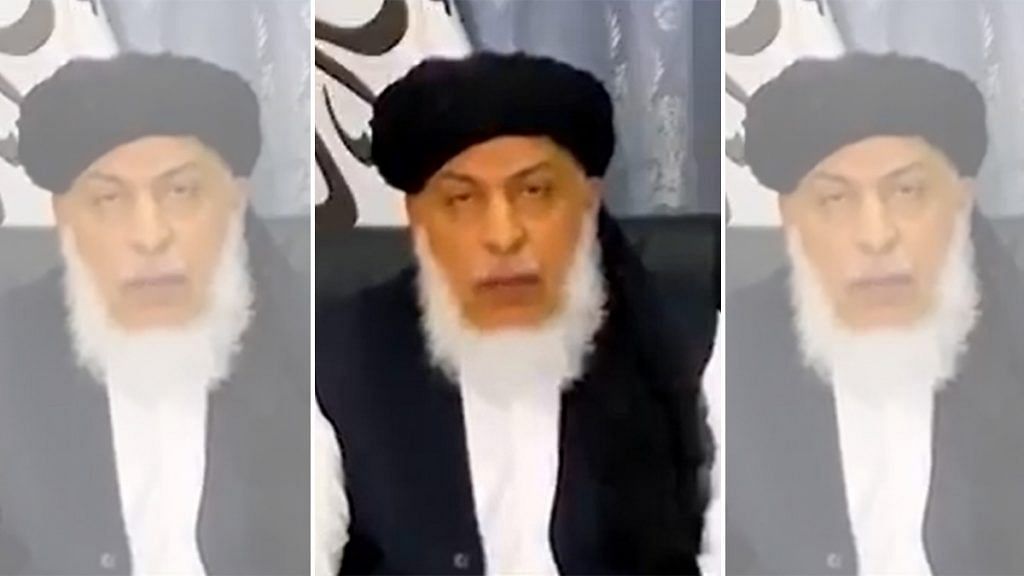New Delhi: An Indian diplomat Tuesday met Sher Mohammad Abbas Stanikzai, the head of the Taliban’s political office in Doha, to discuss the “safety, security and early return of Indian nationals stranded in Afghanistan”.
“Today, Ambassador of India to Qatar, Deepak Mittal, met Sher Mohammad Abbas Stanekzai, the Head of Taliban’s Political Office in Doha. The meeting took place at the Embassy of India, Doha, on the request of the Taliban side,” said a press release issued by the Ministry of External Affairs.
“Discussions focused on safety, security and early return of Indian nationals stranded in Afghanistan,” it added. “The travel of Afghan nationals, especially minorities, who wish to visit India also came up.”
The release also added that Ambassador Mittal “raised India’s concern that Afghanistan’s soil should not be used for anti-Indian activities and terrorism in any manner. The Taliban Representative assured the Ambassador that these issues would be positively addressed.”
Mittal had earlier served as joint secretary of the Pakistan, Afghanistan and Iran division in the Ministry of External Affairs.
While this is the first-ever public acknowledgement of talks between the Narendra Modi government and Taliban leaders, New Delhi has been engaged with them ever since the intra-Afghan dialogue began in September 2020.
According to top sources, this meeting is “not an acknowledgement” by India of the Taliban dispensation; New Delhi is waiting to see what kind of government is formed in Kabul, now that all foreign forces have left the country.
India creates high-level group as US exits
India has also created a high-level group, comprising External Affairs Minister S. Jaishankar and National Security Advisor Ajit Doval along with other senior officials, which will focus on Afghanistan, following the US officially ending its 20-year-long war there Tuesday.
According to official sources, Prime Minister Narendra Modi took the decision to establish the high-level group “in view of the evolving situation in Afghanistan”, and has entrusted it with the agenda to “focus on the immediate priorities of India”.
The group appears to have already met in the last few days, when the US troops’ withdrawal began to gain momentum.
Sources said the high-level group is seized of issues pertaining to the safe return of stranded Indians, the travel of Afghan nationals (especially minorities) to India while it will also ensure that the “territory of Afghanistan is not used in any manner for terrorism directed against India”.
The group has also been monitoring the ground situation in Afghanistan and international reactions, including the resolution passed by the UN Security Council Monday, in which it has been stated that the territory of Afghanistan should not be used for plotting terrorist attacks or providing a safe haven for terrorist outfits.
India had worked on UN resolution
According to sources, India had been in continuous touch with key members of the UNSC, over the past few days, to pass Resolution 2593 on the situation in Afghanistan.
The resolution was adopted overnight Monday, under India’s presidency, which ended today. It demands that territory of Afghanistan not be used for terrorist activities or as a safe haven particularly for groups such as Lashker-e-Taiba (LeT) and Jaish-e-Mohammed (JeM).
As the president of the UNSC, “India felt it is important that given the seriousness of the situation” there should be a Security Council Resolution, sources said.
Sources also said that this decision by the UN Security Council has an “important bearing on the course of developments in Afghanistan”.
“It is a matter of satisfaction that our Presidency could contribute to serious international consideration of this key issue,” a source said.
UNSC Resolution 2593 addresses India’s key concerns pertaining to Afghanistan at this time. “Therefore, we played an active role in ensuring its passage,” sources added.
The resolution also addresses India’s immediate concerns about facilitating travel from Afghanistan, including Kabul Airport.
This will cover Indian nationals stranded in the country as well as Afghan nationals (including minorities) who wish to travel to India, sources added.
Also read: Wary of Haqqani influence, Modi govt unlikely to respond to Taliban outreach immediately
US pullout
On Monday, Marine Corps Gen. Frank McKenzie, the commander of US Central Command, announced the “completion of our withdrawal from Afghanistan, and the end of the military mission to evacuate American citizens, third country nationals and vulnerable Afghans”.
“The last C-17 lifted off from Hamid Karzai International Airport on August 30, this afternoon, at 3:29 pm, East Coast time, and the last manned aircraft is now clearing the airspace above Afghanistan,” he said.
The Taliban, meanwhile, said that with the exit of US troops from there, Afghanistan has “gained full independence”.
(Edited by Arun Prashanth)
Also read: India is adjusting to the new ground reality in Kabul, coming to terms with Naya Afghanistan
